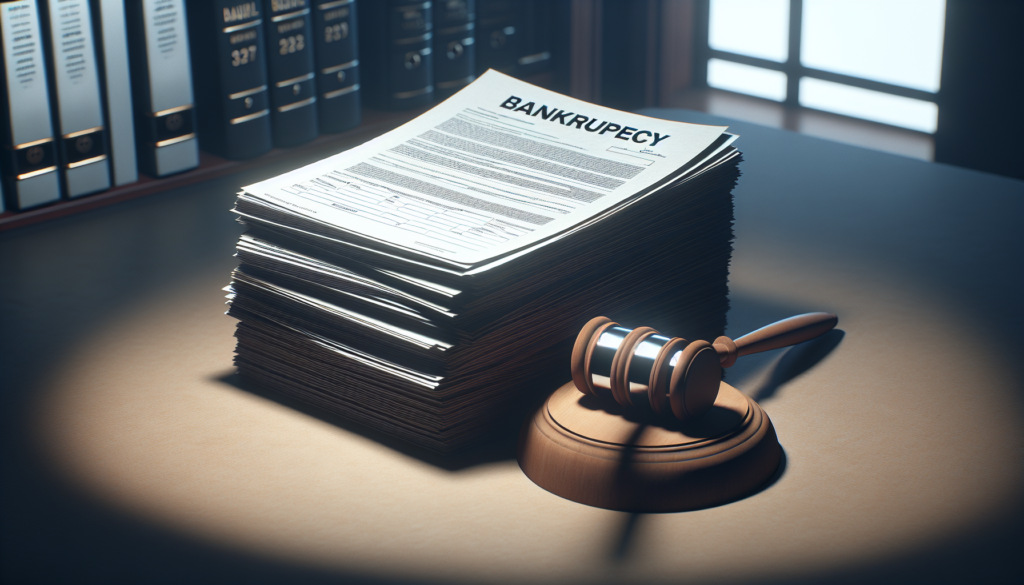
In times of financial turmoil, individuals often consider bankruptcy as the ultimate solution to their debt woes. However, it’s essential to explore alternative paths to financial recovery before resorting to such drastic measures. In this article, we’ll delve into the advantages of avoiding bankruptcy and offer insights into alternative strategies for overcoming debt challenges.
Preservation of Assets: One of the primary benefits of avoiding bankruptcy is the preservation of assets. Take the example of Sarah, who was facing significant debt but wanted to protect her family home. By avoiding bankruptcy and working with a credit counselor, Sarah was able to negotiate a repayment plan with her creditors while retaining ownership of her home and other assets. Bankruptcy proceedings typically involve the liquidation of assets to repay creditors, potentially resulting in the loss of valuable property such as homes, vehicles, and personal belongings. By sidestepping bankruptcy, individuals can retain ownership of their assets and safeguard their financial security for themselves and their families.
Protection of Credit Score: Bankruptcy exerts a profound and lasting impact on credit scores, making it challenging to obtain credit or loans in the future. Consider the case of John, who was able to maintain a good credit score by avoiding bankruptcy and working with a debt consolidation company to negotiate lower interest rates and consolidate his debts into a single monthly payment. A bankruptcy filing can linger on credit reports for up to ten years, significantly hindering individuals’ ability to access credit and secure favorable terms. By avoiding bankruptcy, individuals can preserve their creditworthiness and maintain access to credit options with lower interest rates and more favorable terms.
Avoidance of Legal Proceedings: Bankruptcy proceedings can be complex, time-consuming, and emotionally taxing. They involve court hearings, paperwork, and legal fees, adding to the stress of an already difficult financial situation. Take the example of Tom, who avoided bankruptcy by working with a debt settlement company to negotiate settlements with his creditors. By steering clear of bankruptcy, Tom spared himself the burden of navigating the legal process and focused on resolving his debts through alternative means.
Retaining Control of Finances: Bankruptcy often involves the appointment of a trustee to oversee the proceedings and make decisions regarding the individual’s finances. This can result in a loss of control and autonomy over one’s financial affairs. By avoiding bankruptcy, individuals can retain control over their finances and make decisions that align with their priorities and goals. For instance, Rachel chose to avoid bankruptcy and worked with a financial planner to create a budget and repayment plan that allowed her to regain control of her finances and avoid bankruptcy.
Exploring Alternative Solutions: The decision to avoid bankruptcy opens the door to exploring alternative solutions to debt relief. These alternatives include debt consolidation, debt settlement, negotiation with creditors, and budgeting and financial planning strategies. Working with a reputable credit counselor or financial advisor can help individuals explore these options and determine the best course of action for their circumstances. For example, Lisa avoided bankruptcy by working with a credit counselor to create a debt management plan that helped her pay off her debts over time while preserving her credit score.
While bankruptcy may seem like the only option for individuals facing financial hardship, exploring alternatives and understanding the benefits of avoiding bankruptcy can lead to a more positive financial outcome. By preserving assets, protecting credit scores, avoiding legal proceedings, retaining control of finances, and exploring alternative solutions, individuals can navigate their way to financial recovery with confidence and resilience.
Helpful Agencies To Consider:
Several agencies and organizations offer assistance and resources to help individuals avoid filing for bankruptcy by providing debt counseling, financial education, and debt management solutions. Here are some helpful agencies:
- National Foundation for Credit Counseling (NFCC): NFCC is a nonprofit organization that provides free or low-cost credit counseling services to individuals facing financial challenges. They offer personalized budgeting advice, debt management plans, and financial education programs to help individuals manage their debts and avoid bankruptcy.
- Consumer Credit Counseling Service (CCCS): CCCS is a network of nonprofit credit counseling agencies accredited by the NFCC. They offer counseling services, debt management plans, and financial education programs to help individuals regain control of their finances and avoid bankruptcy.
- Financial Counseling Association of America (FCAA): FCAA is an organization that represents nonprofit credit counseling agencies and promotes high standards of professionalism and ethics in the credit counseling industry. They offer counseling services and debt management solutions to help individuals avoid bankruptcy and achieve financial stability.
- United Way 211: United Way 211 is a nationwide referral service that connects individuals with local resources and assistance programs, including financial counseling services. By dialing 211 or visiting their website, individuals can access information and referrals to nonprofit organizations and agencies that provide financial counseling and support.
- Local Community Action Agencies: Many local community action agencies offer financial counseling services and assistance programs to help individuals and families facing financial difficulties. These agencies may provide budgeting assistance, debt management plans, and referrals to other resources in the community to help individuals avoid bankruptcy.
- HUD-approved Housing Counseling Agencies: HUD-approved housing counseling agencies offer counseling services and assistance programs to help individuals and families facing foreclosure or other housing-related financial challenges. These agencies may provide budgeting assistance, foreclosure prevention counseling, and referrals to other resources to help individuals avoid bankruptcy and stay in their homes.
- Nonprofit Legal Aid Organizations: Nonprofit legal aid organizations provide free or low-cost legal assistance to individuals facing financial challenges, including debt problems and bankruptcy issues. These organizations may offer legal advice, representation, and referrals to other resources to help individuals avoid bankruptcy and resolve their financial difficulties.
By seeking assistance from these agencies and organizations, individuals can access the support and resources they need to manage their debts, regain control of their finances, and avoid filing for bankruptcy.

Get a Free Bankruptcy Case Evaluation